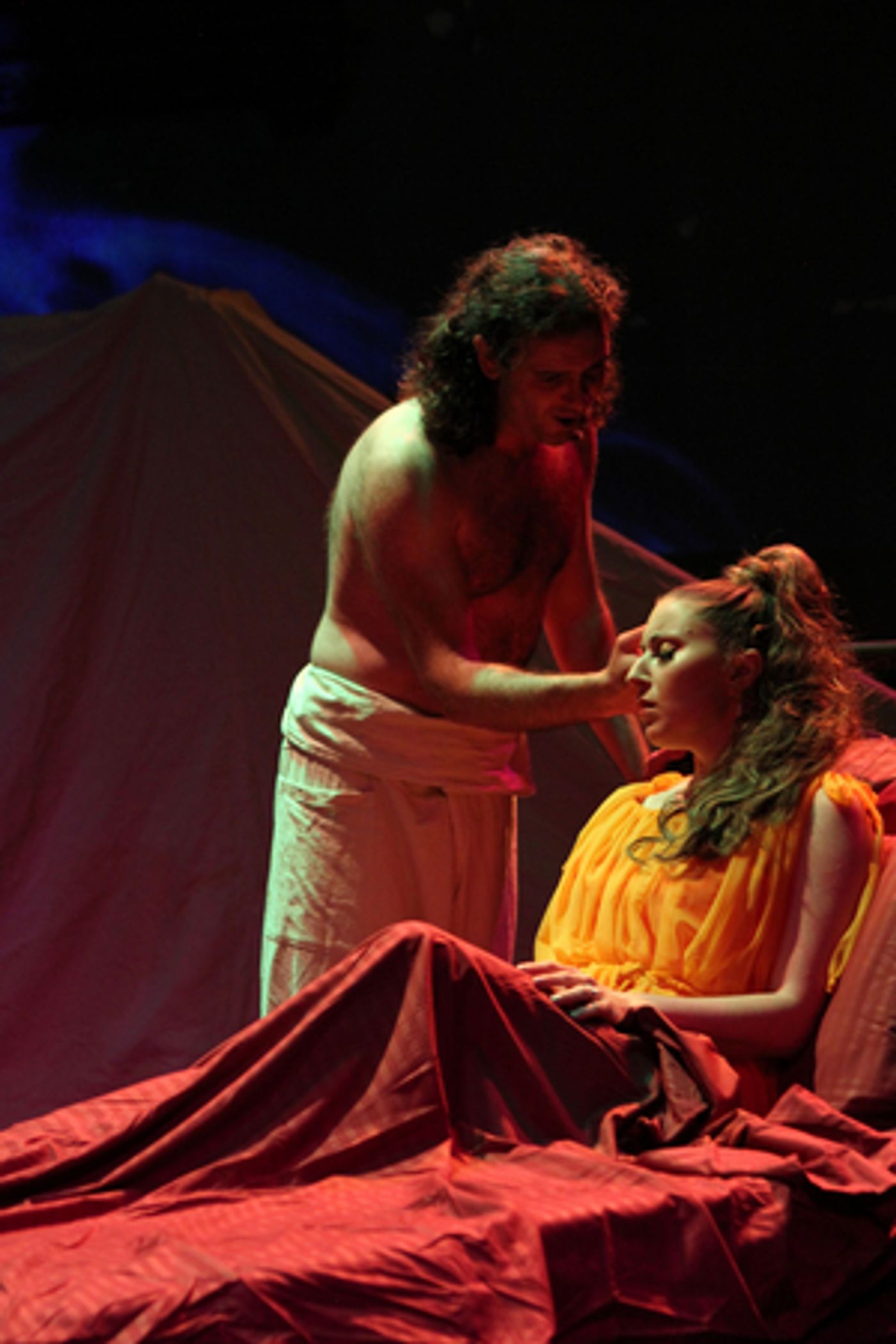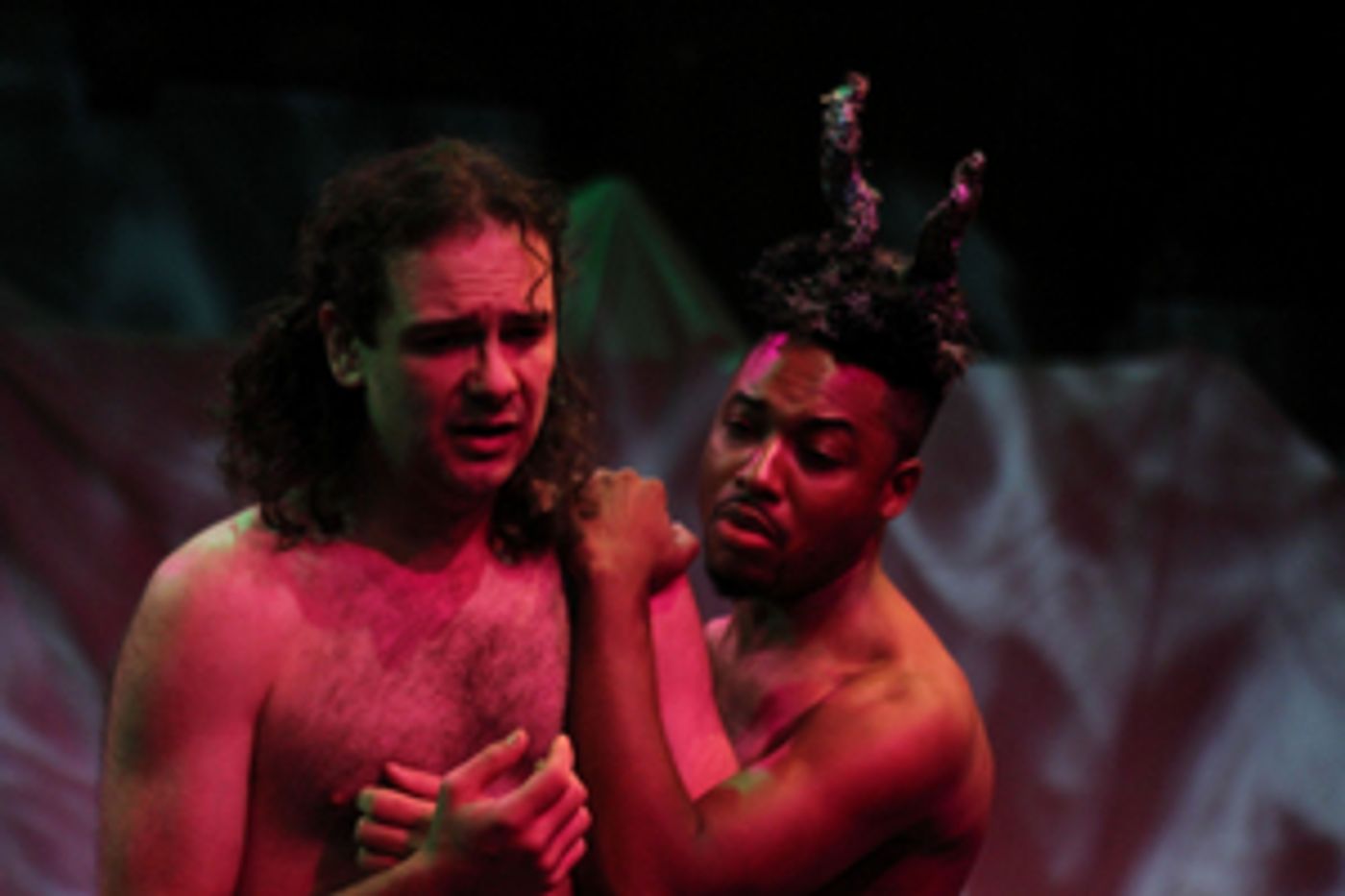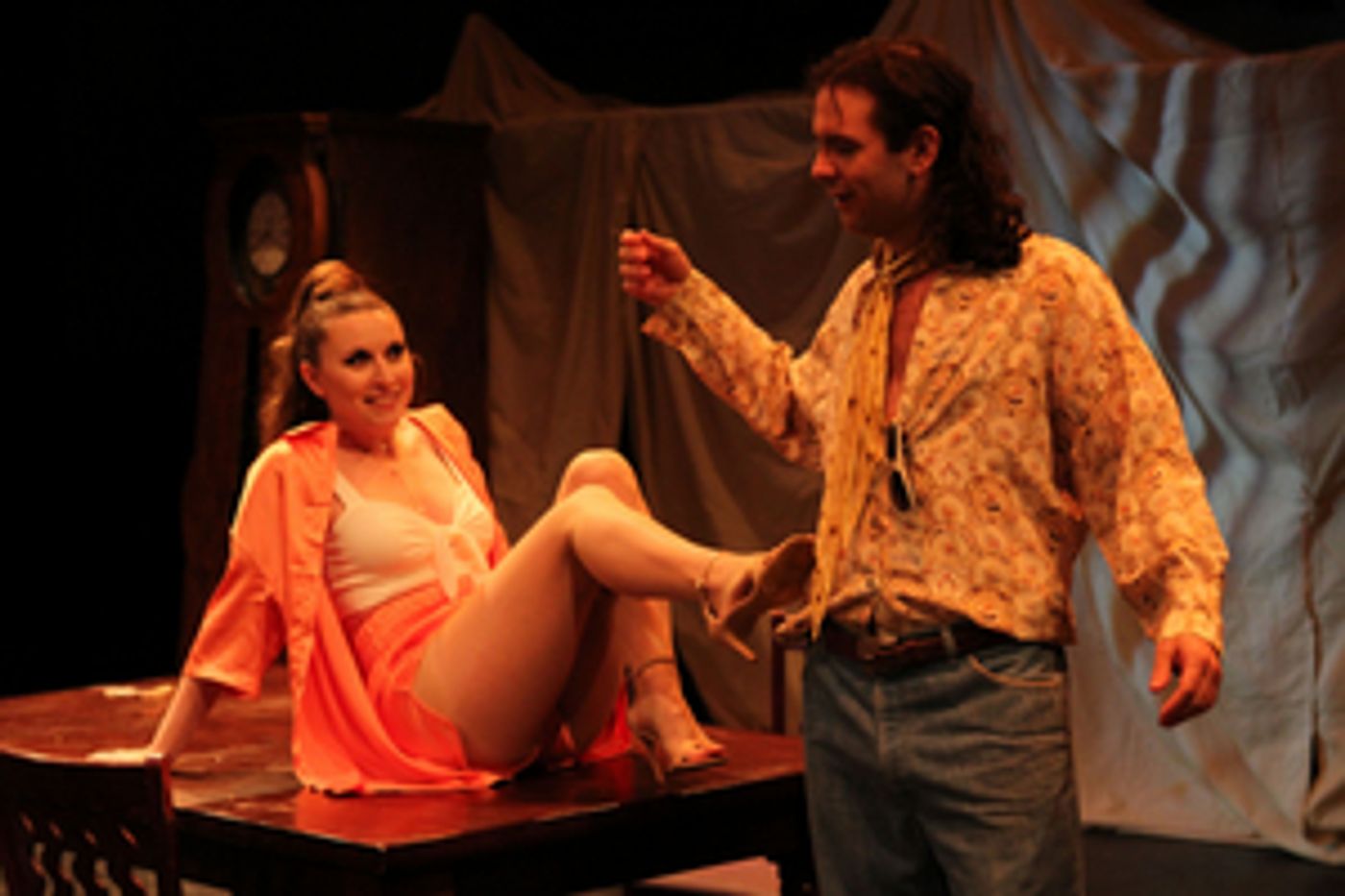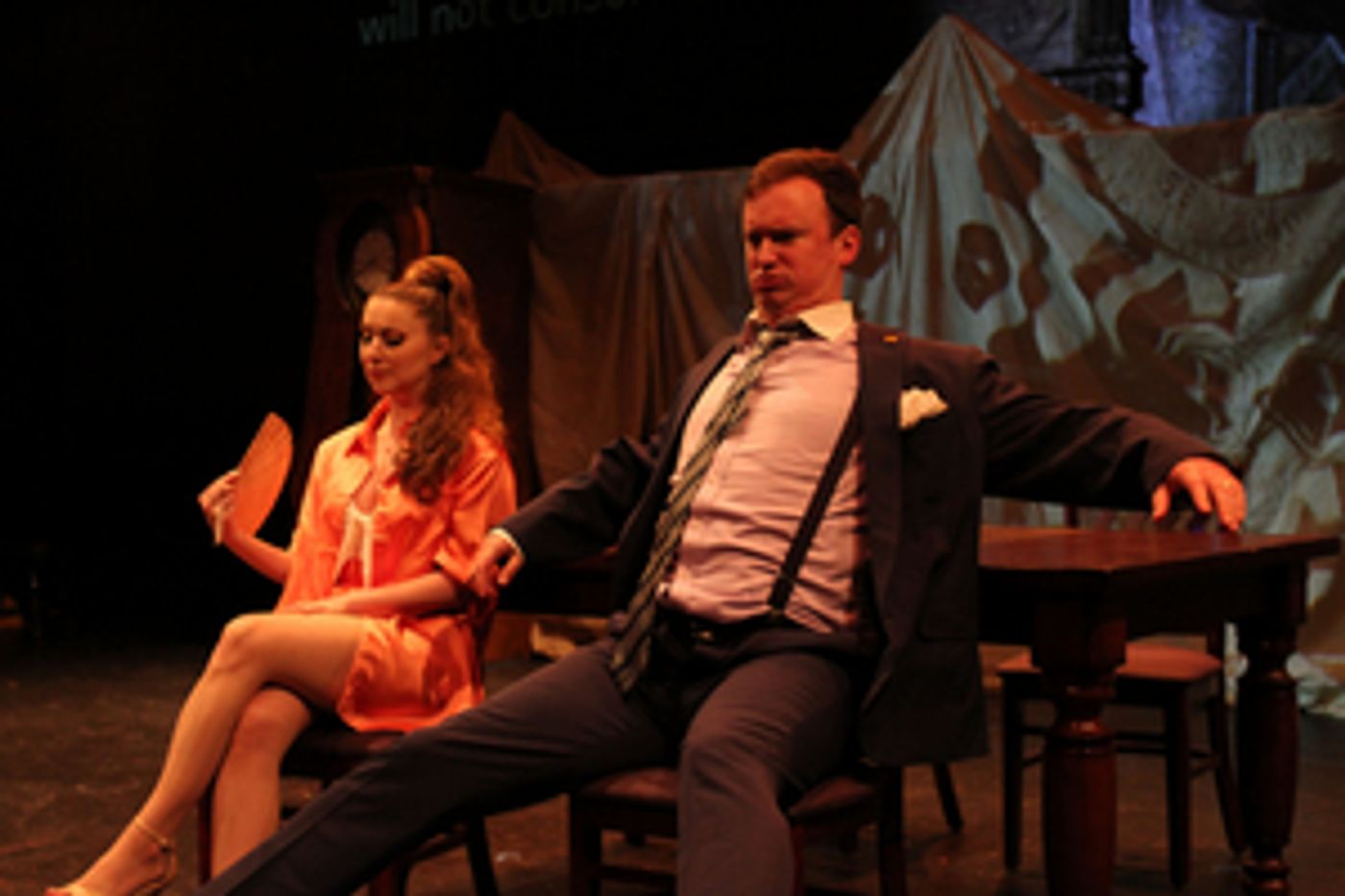Review: New Camerata Opera Has 'Something Familiar, Something Peculiar…' in Its Boulanger-Ravel Double Bill at the Irondale Center
Company's Season Opener in Brooklyn Brings Audiences A Minor But Altogether Enjoyable Evening

The new opera season started out for me far from Lincoln Center's madding crowds, in Brooklyn's Irondale Center, near BAM, with a pair of short pieces by French composers that definitely had their charms.
While Maurice Ravel, composer of the evening's L'HEURE ESPAGNOLE, is the better known, for his many works for piano, the short opera L'ENFANT ET LES SORTILEGES, and most famously/notoriously "Bolero", perhaps the more interesting part of the evening was the curtain-raiser, FAUST ET HELENE, by Lili Boulanger, as arranged by Thomas Juneau and Hilary Baboukis. Together they made a slight but fascinating program, which was performed lovingly by the New Camerata Opera, under music director Kamal Khan and director John de los Santos, with lively sets and projections by Atom Moore, lighting by Joshua Rose and costumes by Ashley Soliman.
Boulanger was the younger sister of Nadia Boulanger, who taught many of the leading composers of the 20th century (though she thought she had no composing talent of her own). Her life was cut short by illness (1893-1918) but the composer's few pieces nonetheless have left musicians wondering where she might have gone had her life continued.

The cantata began with echoes of Richard Wagner before taking a totally different route--rich and French, showing off her skills using just a few voices and a chamber orchestra. The music swept the audience away with her tale (libretto by Eugene Adenis) of another aspect of the life of Goethe's "Faust." Bringing Helen of Troy into the story, it is a far cry from Gounod's journey with Faust and Mephistopheles, though neither she nor Gounod's Marguerite end well, and Faust can't get away from the black arts and evil deeds of the devil.
Still, Boulanger dazzles with her musical story-telling skills in the cantata, under Khan's baton, and the rich voices (in the Saturday September 17 performance) of mezzo Eva Parr as Helene, baritone Chris Carr as Faust and baritone Markel Reed as Mephistopheles. (Faust's troubled sleep is overseen by a pair of spirits.) Mezzo Parr (also a cofounder of the company) was particularly enchanting, as she proved a second time, as the sex-starved Concepcion in the Ravel.

Photo: James Elliott
The opera buffa L'HEURE ESPAGNOLE was first performed in Paris in 1911, set in a clock shop in central Spain. The libretto by Franc-Nohan (arranged here by Klaus Simon) follows the fortunes of Torquemada, a hardworking clockmaker, whose young wife takes advantage of his absences--he's in charge of keeping the town's timepieces working properly--to have her way with a collection of laughable lovers. It bears a closer resemblance to musical comedy than the typical opera (even buffa-style) and has a host of charming melodies, lively dances and elements of folk songs, that combine elements of the French and Spanish song in an orgiastic, slapstick farce.

Photo: James Elliott
The cast brings out the comic elements with aplomb--even baritone Reed (who was the first half's devil) as the muleteer, manages to keep a straight-but-delighted face through most of his funny role, along with baritone Carr as Gonsalve, tenor Gabriel Hernandez as the clockmaker and the handy bass-baritone Andy Dwan as Don Inigo Gomez.
It was a minor but altogether enjoyable evening that gave us hope for more substantial things to come in the 2022-23 season.
Further performances of the double-bill will take place through September 24. See the New Camerata Opera website for further information.
Reader Reviews
Videos

